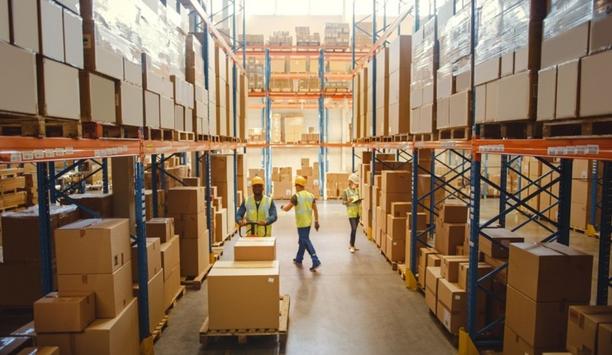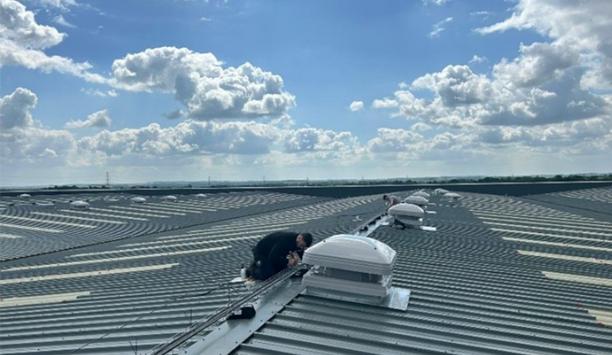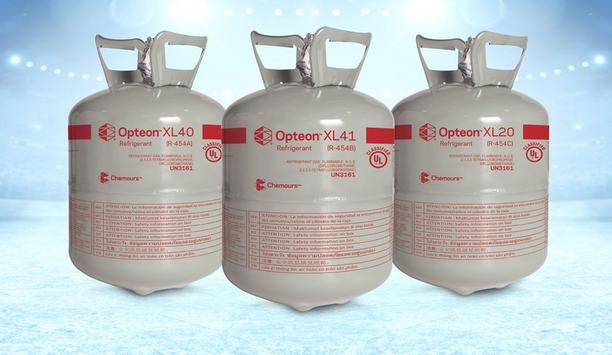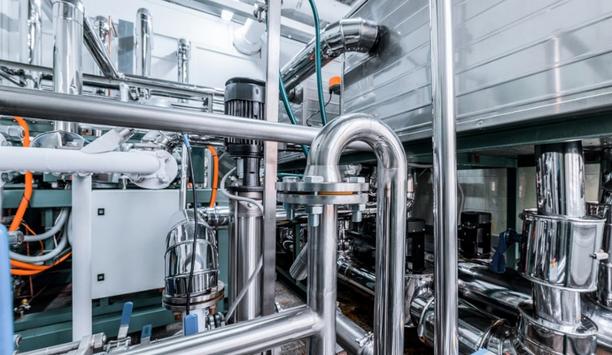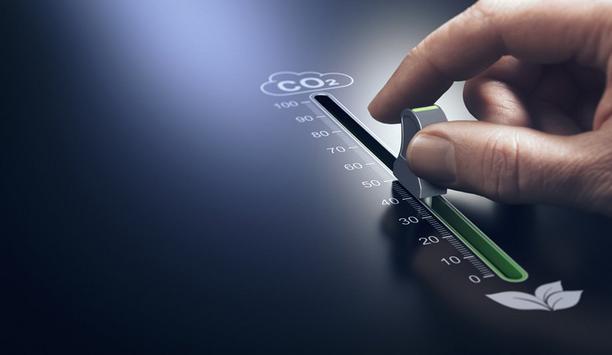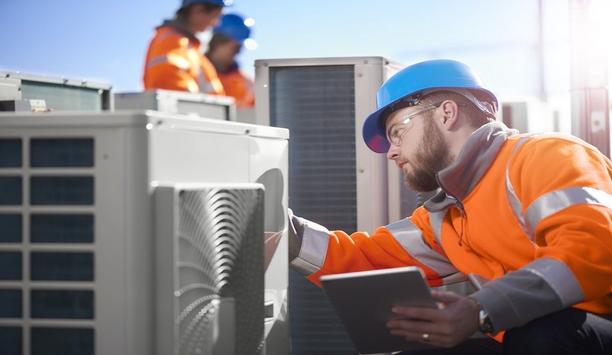Technology & Trends - Heat Pumps
Training has always been important in the heating sector, not least of all because of the dangers associated with working with gas, the traditionally dominant heating fuel in the UK. With the changes that are occurring across the heating industry, primarily the move towards decarbonization, manifesting in a transition to heat pumps, training is more important than ever. Principles of heat pump technology Training could take the form of a CPD on understanding the guides of heat pump technolog...
The HVAC/R industry is in the process of a major shift as A2L refrigerants become the standard in residential and commercial system HVAC. This change is being propelled by stricter environmental policy and advancements in refrigeration technology. However, the transition is not without its hurdles, posing new considerations for system owners, technicians, and equipment manufacturers. Favor of GWP alternatives The Environmental Protection Agency (EPA) has established clear guidelines to phase...
It’s often said the only constant in life is change. In the HVACR industry, that phrase has been especially true. We saw another year of transitions in 2024 that included evolving efficiency and refrigerant regulations, changing corporate net zero targets, the continued emergence of advanced heat pumps, and the impact of artificial intelligence (AI) in building management. Smart and sustainable Throughout these transformations, the industry continues to overcome challenges and in...
For warehouse and factory owners, cutting their heat energy bills by over 90% might seem like a pipedream. I’ve been in enough warehouses to know one thing: heating them is expensive and frustrating. It often feels like throwing money into the wind. However, times are changing, and with the introduction of Shortwave Infrared (SWI), a revolutionary technology set to redefine warehouse heating, business owners can finally achieve energy savings on the scale they need. Shortwave Infra...
Until a couple of years ago, most of the talk about heat pumps occurred around this time of year, when more than half the planet prepares for an autumn cooldown. These discussions were typically limited to regions that only experienced moderate winters. But as anyone who has recently perused an HVACR trade magazine or website—or participated in an industry webinar, event, or social media conversation—can tell you, the topic of heat pumps is virtually unavoidable. Not only do heat p...
By now, the HVAC industry is well versed in, and operating successfully with, various HFC refrigerant production and consumption reduction schedules put forth by regulatory bodies. Under the EPA American Innovation and Manufacturing (AIM) Act, for example, the U.S. experienced a significant reduction (another 30%) in January 2024, advancing the goal of an 85% HFC phasedown from historic baseline levels by 2036. And the EU is working toward its stated objective of an HFC phaseout by 2050. tech...
How can UK businesses effectively tackle the challenge of cooling commercial and industrial buildings? Cooling commercial and industrial buildings can be a challenge for UK businesses. In recent years, the spiraling energy costs have put pressure on businesses with regard to finding new and innovative ways to achieve the same result with less capital outlay and less maintenance. New system installs have sometimes been put on hold and maintenance schedules squeezed, leaving many businesses with...
From temperate climates that reach mid-90 F in June and mild winters allowing people to be outdoors without jackets to the “May flowers” that bloom in early March, it’s evident that society is experiencing World Refrigeration Day’s 2024 theme: “Temperature matters.” In addition to driving climate change, global warming is driving changes in how people live and how industries adapt and innovate to support new dynamics. This is especially true for the HVACR Indu...
By now, most of the HVACR industry is familiar with the HFC phasedown portion of the U.S. EPA American Innovation and Manufacturing (AIM) Act that was signed in 2020 and finalized in 2021. The first phasedowns started Jan. 1, 2020, with a 10% reduction in HFC refrigerant production, importation, and consumption, and was followed by an additional 30% reduction that began Jan. 1, 2024. As these regulations work to achieve a total 85% HFC phasedown from historic baseline levels by 2036, Tech...
“Decarbonising home heating represents one of the biggest challenges to the government achieving net zero,” was a conclusion of the recent National Audit Office report ‘Decarbonising home heating’. The facts, the report states clearly in the opening are: 18% of the UK’s greenhouse gas emissions in 2021 were from home heating and 55,000 heat pumps were sold in the UK in 2022. decarbonizing home heating Crucial to decarbonizing home heating is the government&rsquo...
I remember Dr. Dave Bowman from Kubrick's "2001: A Space Odyssey" commanding HAL 9000 to open the pod bay doors, and HAL chillingly responds, "I'm sorry, Dave. I'm afraid I can't do that." Fortunately, unlike the fictional HAL," ChatGPT and other GenAI tools remain compliant and helpful, far from refusing commands or leaving us stranded in space. In the rapidly evolving landscape of technology, artificial intelligence (AI) should play a pivotal role in transforming various aspects of our dai...
Although the European Union is several steps ahead in the transition away from hydrofluorocarbon (HFC) refrigerants, members of the HVACR industry in other countries currently find themselves in a more urgent situation when it comes to stepping down HFCs and stepping up use of new-generation hydrofluoroolefin (HFO) refrigerants and emerging A2Ls. EPA’s AIM Act This is especially true in the U.S., where 2024 kicked off with an additional 30% reduction in HFC production and consumption un...
Peter Van Den Heede, Head of Sales and Marketing, Benelux, ABB Motion, explains how electrification systems are paving the way for sustainable urban landscapes. As the fight against climate change intensifies, the European Union has set crystal clear targets on the path to Net Zero. If we are to meet the EU’s ambitious goals of a 55 percent reduction in greenhouse gas emissions by 2030, and complete climate neutrality by 2050, then we need to find ever-smarter ways to save energy.&n...
College was never the only path to success. There are many other nontraditional avenues to success, and I had the privilege of blindly venturing down one myself. My path included a short stint in college, then trade school, an apprenticeship, a role building a training program, a managerial role running a branch, and ultimately a leadership role running a large region of companies. I started my career as a heating, ventilation, and air conditioning technician, and I didn’t think I’...
This time of year, a lot of planning is underway. Companies throughout the HVACR industry are mapping out the best path to maintain their current level of business, pursue growth while staying in their lane, or expand into a new area based on changing customer needs and industry opportunities. Whether you’re a small family-owned residential HVAC shop, a major player in commercial HVACR service or manufacturing, or anywhere in between, it’s helpful to be aware of the strong dynamics...
Today’s HVAC contractors are acutely aware that they need visibility on the internet and in their community if they want the phones to ring with requests for new business. As a result, HVAC company leaders have become savvy about marketing and advertising and know that search engine optimization, direct mail flyers, and flashy truck wraps attract attention. Public relations But what they don’t stop to think about is that their competitors likely have a very similar marketing strat...
The energy savings due to the lowering of heating temperatures during unoccupied periods can exceed 20% in the tertiary sector and 30% in the education sector. When buildings are not occupied continuously, the idling or even the optimized shutdown of heating systems is one of the main sources of energy savings. heating system consumption Indeed the heating system consumption matches the thermal loss of heated buildings. When we willingly let the internal temperature drop during a vacant...
Following the UK Chancellor of the Exchequer Rishi Sunak’s Spring Statement on 23 March, several imminent and future changes were laid out by the UK government. This included VAT scrappage for residential energy-saving measures like heat pumps and solar panels, a 12-month cutting of fuel duty by 5p per liter, and to support the decarbonization of commercial premises, targeted business rate exemptions for eligible plant and machinery used in onsite renewable energy generation and stora...
Net-zero is high up on the agenda. And to achieve the UK’s carbon-neutral pledge by 2050 the country’s building stock must be decarbonized. Embodied carbon When we talk about decarbonizing buildings, there are two distinct categories of emissions that come into play. The first is embodied carbon. Here, the embodied carbon of a building includes emissions deriving from the construction materials, the building process, and the fixtures and fittings inside. It also covers emissions f...
Decarbonizing heat is one of, if not the biggest challenges we face in our journey to net zero. Most of the heat in UK homes and businesses is currently provided through fossil fuels, predominantly gas. Gas releases carbon emissions and other particles that are bad for air quality and bad for our environment. So, to get to net-zero we need to replace gas as our main source of heat. The Government plans to phase out gas boilers in newly build homes from 2025, but with the vast majority of exist...
Every six years, the United States Department of Energy (DOE) reviews how much energy certain home appliances and mechanical systems use and determines if an increase in energy efficiency requirements is justified. New energy conservation standards As a result of the 2017 assessment, the DOE has mandated new energy conservation standards that take effect on January 1, 2023, for all newly manufactured residential and commercial air conditioners, heat pumps, and gas furnaces. In addition t...
Even though the COVID-19 pandemic is seemingly drawing to a close, living, working and learning at home is set to continue. Under this new normal, home electricity use is expected to double by 2050. Simultaneously, as climate change devastates communities around the world, we are faced with a moral and economic obligation to cut CO2 emissions from houses. Our goal is to build Net Zero houses and we can't get there fast enough. Fossil fuels use in heating systems Many countries continue to rely...
Seasonal transitions are the perfect time to take inventory and inspect a building’s various systems. We’ve been reminded for years that when we set our clocks back, we should also replace the batteries in our smoke detectors. The same thought process can be applied in support of seasonal preventative maintenance for a building’s HVAC system. Now that the cooling season has passed for a large part of the country, it is time to ensure that HVAC systems have been shut down prope...
I am writing this the day after the Autumn Spending Review, which among many measures, included a huge focus on how the Government wants to ‘level up the country’, creating a new post-pandemic economy, with higher wages and higher skills. Part of this is the £500 million ‘Multiply’ scheme, which aims to increase numeracy and basic mathematics for adults in the United Kingdom via in person tutoring, digital training and flexible courses. Lack of basic skills to acce...
The development of digital technologies in the Heating, Ventilation and Air Conditioning (HVAC) sector has been transformational for the industry, as well as for those who run HVAC systems. While the electrification and digitalization of machines, and assets has made a lot of operations simpler, it has also meant that the collection of machine data has never been more critical. Given that engineers can now view lots of different metrics on a single screen, including things like heating control...
It is now more common to read about cases of Legionnaires’ disease in the media than ever before, with outbreaks regularly being reported in cities around the world, all the time. Many of these cases are attributed to contamination of domestic systems, showers and spas, but some are the result of operating cooling towers. While this problem is not new, with the first reported case in Philadelphia, in 1976, the United Kingdom (UK) has been at the forefront in leading the battle with Legionn...
At the moment, it seems as though a day rarely goes by without low-carbon heating hitting the headlines. Whether it is reports of ‘revamping’ the Clean Heat Grant, to include a ‘boiler scrappage’ scheme, which may offer home owners up to £7000 to make the switch to a low-carbon alternative, to speculation that the Prime Minister is under pressure to push back the 2035 ban on gas boilers, the debate on how and when the low-carbon heating revolution will happen is ong...
With the UK committed to reducing greenhouse gas emissions to zero by 2050, drastic action is needed by the government. For new-build homes, there’s a gas boiler ban coming in less than five years’ time. And for older properties, it’s likely that gas prices will continue to rise, to encourage homeowners to switch to a more sustainable alternative. Renewable heating market With this in mind, the renewable heating market is growing rapidly, albeit from a very small base &ndash...
A landmark UN scientific study has once again highlighted the short window available to prevent irreversible climate change. Businesses are coming under pressure to dramatically accelerate their net-zero carbon initiatives. This comes at a time where market dynamism is returning across a range of key sectors following a downturn triggered by the pandemic. Businesses are also being pressured by stakeholders to recover revenues lost during the pandemic and to start rebuilding commercial activity...
The energy transition is upon us and we are shifting today’s energy use to low and zero carbon sources. The way in which we heat and provide hot water to our homes and businesses will change, and we are developing technologies that will support this transition. A bold and pragmatic policy framework will encourage investment and drive change. BEIS Hydrogen Strategy We, therefore, welcome the publication of the Hydrogen Strategy from the Department for Business, Energy & Industrial Str...
Browse expert commentaries
Related videos
Munters LCX Liquid-To-Liquid Coolant Distribution Units
Opening remarks from the Powering European Industry event in Sønderborg, 29 October 2024 | Danfoss
Episode 1: How we decarbonize industry | Decarbonization Explained | Danfoss
- View more Heat Pumps
- Rheem Heat Pumps
- Samsung Heat Pumps
- Trane Heat Pumps
- Bryant Heat Pumps
- American Standard Heat Pumps
Leveraging Radiant And Hydronics To Help Achieve Decarbonization Goals
DownloadSealed Connectors In Harsh Environments
DownloadPowering And Cooling Next Generation Data Centers
DownloadDebunking Myths To Promote A Bright Future For Heat Pumps
DownloadOptimizing Comfort: The Ultimate HVAC Component Guide
Download


